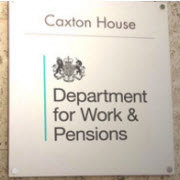Benefit fraud and error at record low
Fraud and error in the benefit system has dropped to the lowest level ever, falling by £350 million last year.
New figures published by the Department for Work and Pensions (DWP) show that benefit fraud and error fell to 1.8% of overall welfare spending in 2014/15, compared to 2.1% since 2010/11, as dedicated fraud investigators work hard to pursue and prosecute those that try to steal from the system.
Last year, the DWP and local authorities recovered a record £930 million that had been overpaid due to benefit fraud and error, an increase of 9% over the last year on a like for like basis.
 Fraud and error is expected to fall with the introduction of Real Time Information (RTI), introduced in August last year, which means that benefit claims are now cross-checked against earnings to highlight if a person is working while claiming – the top reason benefit fraud is committed or errors occur.
Fraud and error is expected to fall with the introduction of Real Time Information (RTI), introduced in August last year, which means that benefit claims are now cross-checked against earnings to highlight if a person is working while claiming – the top reason benefit fraud is committed or errors occur.
Work and Pensions Secretary, Iain Duncan Smith, said:
“Benefit fraud is a serious crime and is taking money away from those in genuine need. That is why our investigators are vigilant in targeting criminals and bringing them to justice.
“Our vital reforms are fixing the welfare system and today’s figures show fraud and error in the benefits system has fallen to a record low.
“We are also continuing to recover more money than ever before, and Universal Credit will further reduce fraud and error.”
The data reveals that:
- fraud and error over payments have fallen by £350 million to below 2% for the first time in a decade
- benefit fraud stands at £1.3 billion or 0.8% of expenditure
- claimant error fell to a record low of 0.6% of spending, which is £1.1 billion in 2014/15
- official error remained at its lowest rate of £0.7 billion or 0.4% of expenditure
To strengthen the fight against fraud and error in the benefit system, the government is:
- rolling out Universal Credit so that it is available in every jobcentre across the country by spring 2016
- delivering our Fraud, Error and Debt Programme, which has already made over £2 billion worth of savings in benefits spending at DWP
- introducing a Single Fraud Investigation Service to prosecute fraudsters across the benefits system – which for the first time will include central investigations into Housing Benefit and tax credit fraud
- using tougher measures to deter fraudsters, including increasing loss of benefit penalties and financial penalties up to a maximum of £5,000 as an alternative to prosecution
- accessing real time PAYE data through Real Time Information so they can detect undeclared earnings or income and correct or adjust a person’s benefits
maintaining record low levels of official error in over payments and underpayments
Read the latest full statistics for fraud and error in the benefit system in 2014/15


